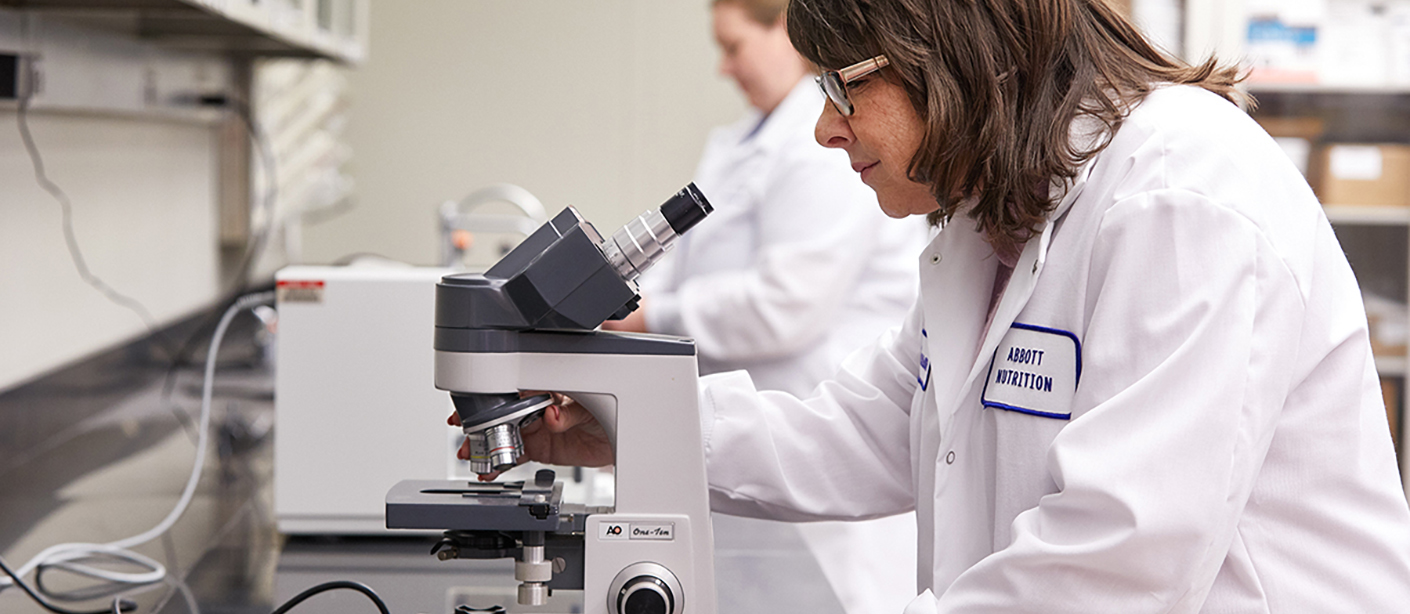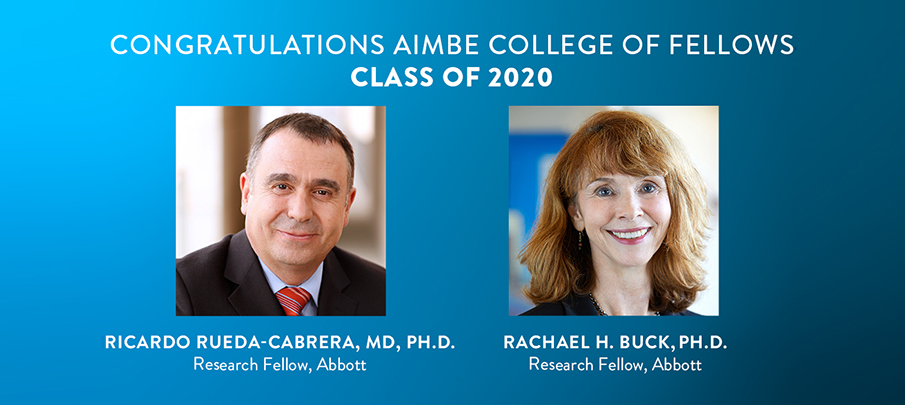Rates of obesity, diabetes, cancer, and heart disease are dramatically rising, leaving health experts searching for ways to improve the health of people everywhere.
That’s why getting back to proper nutrition is more important than ever. Nutrition is the foundation for living your best life. It has the power to support immune health, aid in illness recovery, and prevent disease.
We sat down with Hakim Bouzamondo, divisional vice president and head of global nutrition research and development, innovation, and scientific and medical affairs at Abbott. He leads a team of more than 650 scientists across the globe.
We wanted to discuss the world's biggest health challenges and how nutrition can play a role in tackling them throughout the next decade.
Q: How critical is nutrition to solving the world’s most pressing health challenges?
HB: Nutrition is, and will remain, the most significant opportunity to change people's lives. In a world where diabetes is an epidemic and where obesity is affecting both developed and developing countries, there's an important role and responsibility for us to develop new nutrition innovation at Abbott. But change must involve governments, regulatory agencies, and academia working together. Despite its recognized importance in all facets of health and healing, nutrition is often overlooked and underserved—and not just within the general population.
There is also a significant gap in how nutrition is addressed in healthcare settings, which creates a critical “blind spot” in patient care. Over 70% of U.S. medical schools don’t provide the recommended minimum of 25 hours of nutrition education.
At Abbott, we will do everything we can to address all these critical issues, but we won't be able to do it alone.
Q: The International Diabetes Federation calculates that a staggering 463 million people – are living with diabetes. IDF estimates that there will be 578 million adults with diabetes by 2030.
How is Abbott focusing on this condition in terms of nutrition?
HB: Diabetes is a global threat. Many factors drive this. A surge in type 2 diabetes, rising levels of obesity, and unhealthy diets. There are regions, such as the Middle East and India, where diabetes is growing at a much faster rate than the U.S. Therefore, we need to develop solutions that are globally viable but also tailored to each region. We have developed a diverse portfolio of breakthrough diabetes products designed to meet the needs of each unique patient. From monitoring products like the FREESTYLE LIBRE that make glucose testing easier to products that help manage the disease like Glucerna® shakes and bars, we are helping those living with diabetes live full, healthier lives. But we can’t stop there. We will have to continue to innovate, and more importantly, work with others around the globe to make a significant change over the next ten years.
Q: As consumers’ personalized nutritional needs increase, how is Abbott focused on meeting them where they are.
HB: Modern nutrition began in the 20th century when scientists determined that deficiencies in vitamins like D and C were related to specific conditions (like rickets and scurvy, respectively). From these discoveries, countries began imposing guidelines to fortify foods to combat deficiencies. This was a mass nutrition approach, which was critical and very important to avoid public health issues.
That said, it's clear that looking at people as individuals with specific needs is crucial for the future of nutrition. For example, there is more and more research surrounding individuals’ diet and the microbiome (the beneficial bacteria in your gut) and the impact it plays on your digestive and immune health.
At Abbott, we started researching the microbiome, specifically human milk oligosaccharides (HMOs), more than 20 years ago. By introducing HMOs into infant formula, we made a big step forward and narrowed the nutritional gap between formula and breast milk. But that critical research implication goes far beyond babies. The benefits of the prebiotic effects of these HMOs can be translated into a much larger and broader population, like adults and the elderly, to help them manage multiple diseases. This is the next frontier, which may not be something for tomorrow but soon.
Q: As the population continues to age, what are the biggest nutrition challenges that will be addressed regarding keeping this population healthy?
HB: After the age of 40, you start to lose muscle every year, so continuing to exercise is important. Adults over 40 can lose up to 8 percent of their muscle mass every decade. Our muscles are essential for a healthy life. However, when you think of your muscles, sometimes people only think about exercise. Nutrition and diet play a huge role together in building muscles. Therefore, Abbott has been developing products that help people maintain their muscle mass and the energy needed to stay active and independent as they move through the decades.
We are also looking at the brain and the natural deterioration of our cognitive function that coincides with aging. Staying physically active and maintaining energy levels will positively affect cognition – your brain health. There are also key nutrients critical for supporting cognition including, DHA, lutein and other micronutrients. We are attempting to help people age more healthfully by understanding these nutrients better and how to deliver products for older adults.
Q: In the U.S., the number of surgical procedures is increasing, with more than 30 million performed annually according to a report from the Centers for Disease Control and Prevention. No matter what kind of surgery you may be having, preparing for one can raise a lot of questions and concerns. How important is nutrition in surgery?
HB: It is essential. The whole concept of not eating and drinking hours before surgery is more than 150 years old. The good news is this is evolving. Two decades ago, a group of surgeons started developing very innovative guidelines called the Enhanced Recovery After Surgery (ERAS) guidelines, which are being adopted by many hospitals in the U.S. ERAS guidelines are a set of actions that medical staff should be taking to prepare people for surgery, and then a set of steps to help people during and after surgery.
Nutrition is a crucial part of these guidelines. Traditionally, patients have had to fast. Think of surgery like running a marathon, in which you will probably lose 3,000 to 4,000 calories. This is exactly what happens during surgery – your nutrition and energy needs increase. We have products that offer solutions to these problems. Ensure® Pre-Surgery Clear Carbohydrate Drink gets people ready for the surgery by decreasing postoperative insulin resistance. We also provide products that support their immune responses before and after the surgery like Ensure® Surgery Immunonutrition Shake. Inadequate nutrition prior and after surgery can increase the risk of infections and malnutrition.
Q: If you could address two critical issues in the next ten years, what would those be?
My hope is that we continue to deliver sustainable health solutions that address major world health issues like malnutrition and diabetes. If we can help lower the burden of these issues on the population, this would be the biggest win, not only for us at Abbott but for the entire world.




Social Share